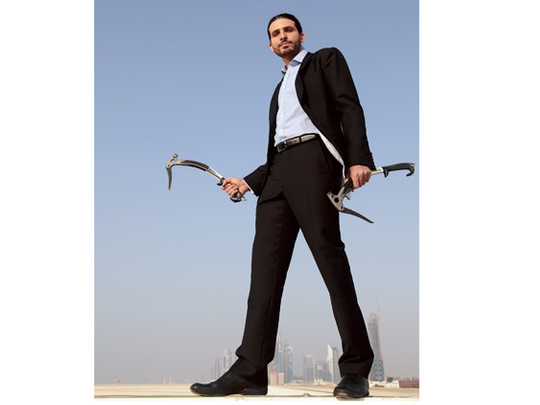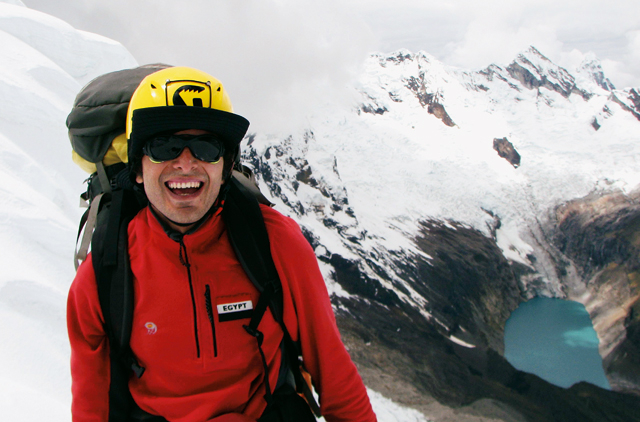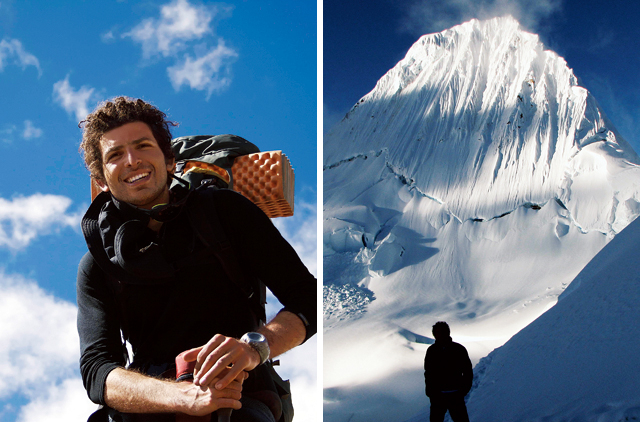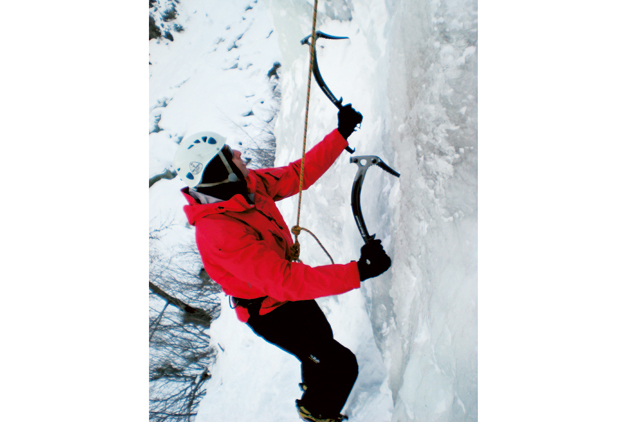
When Omar Samra was 11 years old and battling severe asthma, he came seventh out of eight in the 800-metre race at his school sports day.
“It was really embarrassing,” he says. “This other guy and I had to walk to the finish line.”
As junior-school humiliations go, it’s not quite up there with getting your face squished into a puddle by the rugby captain in front of the cutest girl in the school, but it was embarrassing enough for the young Omar to realise that he needed to take his doctor’s advice and start playing sport if he was to save face amongst his peers.
“It was a defining moment,” says the 33-year-old. “After that, I started training and the next year I finished first and began racing with the seniors. That was when I realised that if you work hard at something and put your mind to it, you can change the cards you’re dealt – in my case it was my health,” he adds.
Omar has certainly worked hard since then, gradually building up the stamina and mental fortitude of an Olympic athlete. These days he spends much of his free time climbing the world’s highest mountains, having been bitten by the climbing bug while at a summer camp in Switzerland when he was just 16 years old. This was the first time the Egyptian had ever seen proper snow.
This year he plans to scale the summits of Alaska’s Mount McKinley and Mount Vinson in Antarctica. If he successfully completes these two climbs he will become the youngest Arab to climb the highest mountain on each of the world’s seven continents, having already scaled five in recent years. He is currently the youngest Arab and the first Egyptian to climb Mount Everest, of which he is rightly proud.
Given his monumental achievements, it would be easy to picture Omar as a competitive child in a large brood, wanting to beat his siblings at tennis (born in Wimbledon, he was encouraged by his parents to be the Egyptian Boris Becker). But he says this couldn’t be further from the truth. “We had an interesting family dynamic because my two elder sisters are mentally handicapped and there are nine and a half years between me and my younger brother. So we never felt like we wanted to compete with one another. I had an irregular childhood because I had the responsibility of taking care of my sisters while I just wanted to go out with my friends. I disliked it then but now I feel grateful for those days as my sisters taught me a lot about responsibility and patience.
“I’m not as competitive with other people as I am with myself. I played a lot of team sports but I think I liked climbing and squash most because you’re depending on yourself and have no one else to blame if you don’t live up to your expectations.”
Omar, who plants the Egyptian flag on each summit he reaches, says he was two-thirds of the way up Aconcagua in Argentina, the highest mountain in the Americas, when he found out about the revolution in his native Egypt in January 2011. Asked how it affected his mindset, he says he was worried for his family but was determined to go on.
“I had invested so much – mentally, emotionally, financially – in the trip. From an emotional standpoint I thought it was symbolic to support what was happening in Egypt by taking the Egyptian flag, like I do on most climbs, and writing a message on it, which was ‘Egypt is for its people’.”
Arriving in Cairo after the trip, he went straight to Tahrir Square because he was curious to see what was going on. “Fortunately or unfortunately I missed the main action,” he says. “But I was there for ten days after that and I was in the square when I heard that Hosni Mubarak had stepped down. It was an amazing feeling to be part of that, it felt like one big party.”
Omar says the reason he climbs is because he is attracted to discovering “where our limits lie, both on a mental and physical level”.
“Climbing covers both these things,” he explains. “I always felt that mountains were the purest form of challenge. It’s basically you against you. You can’t challenge nature, so you’re fighting the weakness of your mind and that’s what really drew me to it,” he says.
“I love nature in all its forms: seas, jungles, everything. But I think mountains and glaciers are the most beautiful parts of our planet. But also there’s a spiritual element to it, which is the sense of peace and calm you get when you’re in the mountains. It’s unmatched by anything else.
“I look forward to these trips because it’s a great opportunity to disconnect. You have to be alert at all times and be completely aware of your surroundings. You have this clarity of mind. When you come back you have the most profound ideas and you feel energised and refreshed.”
When Omar isn’t up in the clouds gazing down at terra firma from the summit of yet another mountain he’s conquering, he works as the CEO of Wild Guanabana, of which he is the founder. As the MENA region’s first Carbon Zero travel company, it organises personalised trips for ecologically minded adventurers who want to avoid the world’s busy tourist traps and interact with the local communities.
Omar formed the company in 2009 after a series of personal travel experiences inspired him to leave behind a career as an investment banker and reshape his life. As an entrepreneur he says he is keen to play a part in building Egypt’s economy and creating opportunities for the country’s youth.
“Entrepreneurship is something that I studied in my MBA and something I’m very passionate about,” he says.
“I think it’s going to be the biggest catalyst for change in our region. I’m already involved with some start-ups in terms of mentorship and offering advice and assistance.”
When I ask whether he is optimistic that Egypt can shrug off its post-revolution setbacks he says that he’s an optimist but agrees that the country faces a challenging period.
“It will be interesting to see what happens in terms of the transition of power.
“We’ve come so far. Some people focus on the negative things but if you look at where we’ve come from since last January it’s huge. And it’s just a natural process that any country will go through with so much change in such a short period of time. I think we’ve probably coped with it better than most. There are good things in store,” he says.
He says the stability of not having to worry about the next pay cheque is the only thing he misses about his work as an investment banker – even if he was living the high life in London and Hong Kong – but he never contemplates returning to that life. “I know it’s a cliché, but when you start doing what you love, then you don’t need to work another day in your life,” he says. “And it’s true because I wake up every morning and go to sleep thinking about the business. I’ll be in a random place and I’ll see something and it will have some connection to the business and I’ll want to rush home to work on it.”
Last year, Omar got married to a woman he met through his business. “Marwa sent us an email to enquire about trips to Mount Kilimanjaro,” he explains. “I picked up her email and we met to talk about it more and ended up going to Kilimanjaro together with a group of people. The rest is history. Once you start following your passion, intuition, then everything starts falling into place.”














